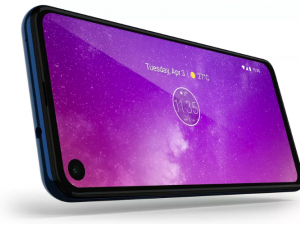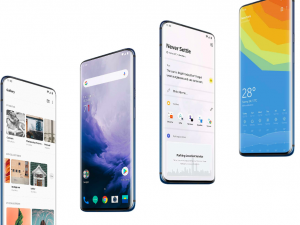The Pixel 4 Will Lose The Ugly Notch
Damien McFerran 21/01/2019 – 8:57am
Google's next flagship will be all-screen
The Pixel 3 XL turned heads not just because of its impressive specs, great software and amazing camera, but also because of that insanely ugly notch. The notch may be in fashion right now, but Google's implementation has to rank as one of the most obnoxious; it's chunky and unsightly, and we think that many will have been put off by it, and therefore turned to other phones on the market.
It would seem that Google has listened to complaints as a new patent for the Pixel 4 filed to the World Intellectual Property Organisation – found by 91Mobiles – shows an all-screen handset that ditches the notch entirely for maximum display real estate. How has Google achieved this? Well, there's no sign of a 'hole punch' in that screen, and it doesn't appear to have a slide-out camera array, either. We'll no doubt find out more as the year rolls on, but for now, it would seem that Google has found some magical means of hitting a dream screen-to-body ratio.
Outside of that, the design is a close match to the Pixel 3. There's the two-tone rear panel – which has become something of a trademark for the Pixel range – and there's still only one camera on the back; it would seem that Google is committed to making a single sensor as good as it possibly can be. It looks like the power and volume buttons are unchanged, too.

However, one thing that might perhaps upset people is the fact that the Pixel 4 retains the rear-mounted fingerprint scanner, which would suggest that it lacks an in-screen variant. With so many phones packing in-screen tech in 2019, the Pixel 4 may look rather old-fashioned when it launches much later in the year (Google usually announces its phones in October).
Given that some complained that the Pixel 3 didn't do enough in 2018 to stand out from its rivals, the possibility that its sequel will also play it safe and ignore the design trends of 2019 will be cause for concern, but Google has long made its Pixel phones a showcase for software rather than hardware; even the camera itself is largely powered by AI smarts rather than hardware gimmicks, like Samsung variable aperture approach on the S9.
Is Google's conservative approach going to work in a year where hardware gimmicks – such as folding phones – are becoming increasingly important? That remains to be seen, but that all-screen display will go a long way to impressing consumers, we'd wager.




